
Nuclear and New Technologies
In 2020, the European Leadership Network (ELN) in cooperation with partners set out on a journey to unpack technological complexity as it impacts nuclear decision-making and propose practical policy approaches to deal with related risks.
The challenge we want to address
Nuclear decision-making is complex. Disruptive technologies pose both risks and opportunities to nuclear decision-making which need to be better explained, understood, gamed, and mitigated. The project’s focus is on the – so far under-examined – implications of the technological complexity that emerges when nuclear decision-making is affected by a plethora of new technologies which are all evolving rapidly and simultaneously. Building on existing work that looks at the impact of individual technologies on nuclear policy, this project assesses the impact of these technologies in the aggregate, seeks to overcome related risks and explores opportunities offered by technologies to mitigate these risks.
Leveraging on the ELN’s deep expertise, convening power, and network of seasoned, high-level practitioners from multiple countries and utilizing ELN’s partner organizations strengths, we have embarked on a path to study, analyze, describe, train, and recommend decision-makers on nuclear policy challenges of technological complexities.
The project will develop, test-drive, propose and promote practical policy approaches that governments might pursue to begin to responsibly regulate and steer the weaponization of potentially disruptive technologies and their use in nuclear decision making.
The objectives of this multi-year project are to reduce risk in the nuclear decision-making, identify mitigation strategies, de-escalation solutions and manage potential and unintended escalation. We also strive to engage and raise the voice of younger generation experts in the discussion.
To commence work, the ELN in partnership with the German Federal Foreign Office has organized and hosted a “Rethinking Arms Control” workshop in March 2021. This closed-door meeting brought a diverse group of experts of scholars, practitioners, former nuclear weapons decision-makers, and emerging leaders to ideate and analyse the challenges, opportunities, and pitfalls of technological complexity. The summary of the proceedings and major takeaways from the workshop ARE highlighted in the following report: New Technologies, Complexity, Nuclear Decision Making and Arms Control: Workshop Report, June 2021
How we want to achieve the goal
The project is built upon four strands which – like four legs of a stool – support the main goal. These are:
- Baselining Exercise
- Big Data Analysis of Emerging and Disruptive Technologies
- Methodologies to Deal with Multi-tech Complexities
- Mitigation Strategies & Arms Control
We begin by asking what the science (strand 1), practioners (strand 2) and current policies and tools (strand 3) tell us about the impact of and ways of dealing with technological complexity in nuclear decision making. We then craft policy approaches that governments might pursue (strand 3 and 4).
This comprehensive approach allows us to unpack technological complexity by harnessing the brightest minds around the world, test policy approaches with people who “have been there and done it” and use our networks to develop and promote solutions with current decision-makers.
Funding from the German Federal Foreign Office, the MacArthur Foundation, the Carnegie Corporation of New York, the Nuclear Threat Initiative, the Heinrich Böll Foundation and in-kind contributions from project partners make this work possible.
Nuclear and New Technology Publications

The potential terrorist use of large language models for chemical and biological terrorism
In our latest New European Voices on Existential Risk (NEVER) commentary, Nicolò Miotto explores the potential existential risks stemming from the terrorist use of large language models (LLMs) and AI to manufacture chemical, biological, radiological and nuclear (CBRN) weapons. In the commentary he explores how LLMs and AI have enabled terrorist groups to enhance their capabilities so far, and what governments, the private sector, and NGOs need to do to mitigate future risks.

Ok, Doomer! The NEVER Podcast – Climate change: A hot topic
Listen to the third episode of the NEVER podcast – Ok, Doomer! In this episode, we explore climate change; the existential risk that the general public is most familiar with. Featuring an exploration of how the climate crisis affects politics on the local, national and international levels, climate change as a “polycrisis”, and how the world in the past has managed to unite around policies that combat climate change such as closing the hole in the ozone layer.
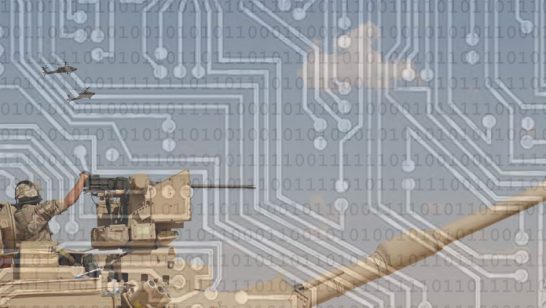
Navigating cyber vulnerabilities in AI-enabled military systems
As countries continue incorporating AI into conventional military systems, they should prepare themselves for the risk that adversaries are likely already working to exploit weaknesses in AI models by threatening datasets at the core of AI. To address this, Alice Saltini writes that states should develop metrics to assess how cyber vulnerabilities could impact AI integration.
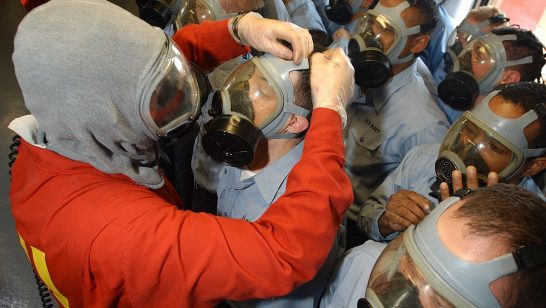
Sounding the alarm on AI-enhanced bioweapons
In our latest commentary produced from our New European Voices on Existential Risk (NEVER) network, Rebecca Donaldson explores the potential of new technologies for security whilst minimising their potential for harm in the realms of AI and the life sciences. She proposes that more funds go towards the biological weapons convention, the creation of an Emerging Technology Utilisation and Response Unit (ETURU) and the fostering of a culture of AI assurance and responsible democratisation of biotechnologies.

What does global military AI governance need?
In the absence of globally acknowledged governance frameworks for AI in the military domain, two new initiatives came into existence in 2023 – the Responsible Artificial Intelligence in the Military Domain (REAIM) and the US-initiated Political Declaration. Mahmoud Javadi and Michal Onderco analyse both, writing that REAIM provides a much-needed space for a democratic, depoliticised, and decentralised approach to global military AI governance.

Ok, Doomer! The NEVER Podcast – Nuclear War: What is it good for?
Listen to the second episode of the NEVER podcast – Ok, Doomer! In this episode, we explore nuclear war, the first man-made existential risk. Featuring an introduction to the topic, disarmament versus deterrence, how governments have dealt with issues such as proliferation, and how they should respond to them in future.
-

European Leadership Network (ELN)
Go to website -
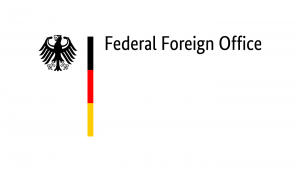
Federal Foreign Office
Go to website -

The Arms Control Association (ACA)
Go to website -
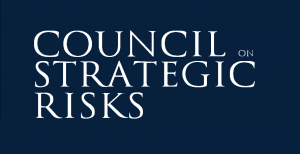
The Council on Strategic Risks (CSR)
Go to website -

The Center for Global Security Research (CGSR) at the Lawrence Livermore National Laboratory (LLNL)
Go to website -

The Oracle Partnership
Go to website -

Professor Andrew Futter, University of Leicester
Go to website -

The British American Security Information Council (BASIC)
Go to website -

The Heinrich-Böll-Stiftung (HBS)
Go to website -

The Younger Generation Leaders Network on Euro-Atlantic Security (YGLN)
Go to website -
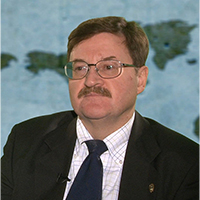
Dr Vladimir Kozin (Analytical Agency “Strategic Stability")
Go to website





